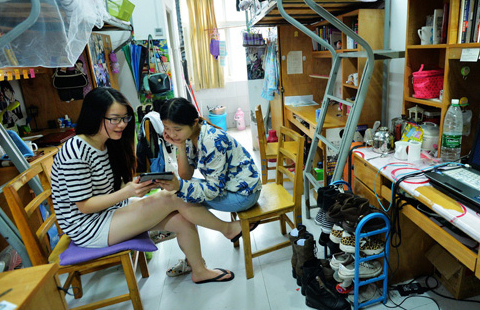US law firm probes China's anti-virus company Qihoo 360
By He Yini (chinadaily.com.cn) Updated: 2015-05-05 14:14In an announcement posted on its official website that was later deleted, AV-C didn't identify which company it was, but said that "a product submitted for testing by the vendor had been specifically engineered for the major testing labs, including AV-C".
Sources familiar with the matter told China Daily that the investigation was launched in response to a public report published in Chinese on April 20 on the Baidu Baijia, a major we-media platform developed by China's tech giant Baidu Inc.
The report, titled "How could AV-C tolerate Qihoo's cheating behavior during testing", soon made headlines on multiple media outlets across the country.
When contacted by China Daily the author of the report, an independent tech observer who refused to be identified, said the article was written because Qihoo's behavior was too blatant to be ignored as the company fooled not only the testing labs but millions of users whose interests could be greatly undercut due to false marketing information.
"I take full responsibility if any of the information in my report is not true," said the author.
By the end of last year, monthly active users of Qihoo's PC security products and services have reached a record high of more than 509 million, up 7.16 percent from a year earlier, according to the company's financial report.
"Independent anti-malware testing plays a key role in raising the standard of protection on users' devices, which in turn makes the Internet a safer place for everybody," said Andreas Clementi, chief executive officer of AV-Comparative.
"Misuse of such tests for marketing purposes will, in the long run, result in more successful malware attacks, making Internet users less secure," he said.
AV-C also pointed out that counter-accusations were leveled by Qihoo against two fellow Chinese security firms, Baidu and Tencent, which were claimed to have also submitted program versions for testing that differed from what they offered the public.
Lab researchers confirmed a difference, but ruled out the possibility of cheating by the two firms, as similar flags were found in all submitted products, including Qihoo's, and "no evidence" could be found that the products gained advantage.
Both Baidu and Tencent were able to provide "good reasons for including these flags in their products", said the announcement.
- China lifts price control on most medicines
- Chauffeurs complain about Didi's new rules
- World's largest oil trade show sees more Chinese presence
- Auto giants' shares halt trading after announcing new chairmen
- US law firm probes China's anti-virus company Qihoo 360
- Wang Jianlin: Asia's richest man
- Apple iPad Pro: New details revealed
- Guizhou's high-quality green tea has the taste of success
















